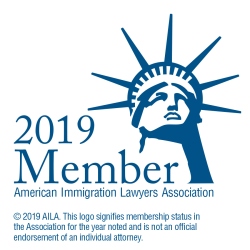We assemble, prepare and submit to the Department of Labor and United States Citizenship and Immigration Services the extensive documentation and forms required for various types of employment-sponsored immigration.
We also discuss with each client the implications of the client’s status for his or her family members. Immediate family members can usually accompany the client to the United States, and can sometimes receive employment authorization. Frequent types of employment-sponsored immigration include the following:
Permanent Residence Through Employment
EB-1
The first preference employment-based category includes three types of applications, each with a carefully defined set of requirements. In most cases, foreign nationals who fit into one of these three categories are able to avoid the quotas that sometimes apply to immigrants in the second and third employment-based categories, particularly for Chinese and Indian applicants.
Extraordinary Ability
For individuals with extraordinary ability in the sciences, art, education, business or athletics. Individuals who can demonstrate extraordinary ability can often, but not always, obtain permanent residence without a sponsor.
Multinational Manager
For individuals who have worked as an executive or manager for a multinational corporation, and intend to work in a similar capacity in the United States.
Outstanding Professor or Researcher
For professors and researchers who can demonstrate an outstanding record of accomplishment in their field.
Extraordinary Ability
For individuals with extraordinary ability in the sciences, art, education, business or athletics. Individuals who can demonstrate extraordinary ability can often, but not always, obtain permanent residence without a sponsor.
Multinational Manager
For individuals who have worked as an executive or manager for a multinational corporation, and intend to work in a similar capacity in the United States.
Outstanding Professor or Researcher
For professors and researchers who can demonstrate an outstanding record of accomplishment in their field.
All EB-1 application packages require numerous reference letters from the applicant’s peers. We assist our clients by drafting, reviewing and editing the peer letters on our clients’ behalf.
EB-2
The second preference employment-based category applies to workers with at least a masters degree. Most EB-2 employees must receive certification from the Department of Labor (see below). Those who can demonstrate that their work is in the national interest, and that they have a history of exceptional achievements in their field, can often waive the labor certification requirement. Researchers whose work will benefit the medical or other scientific community, or business people whose work will have far-reaching benefits such as cleaning up the environment or other important results, are frequently able to demonstrate that their work is in the national interest.
Workers from all countries except India and China are able to avoid the significant quota backlogs that slow down the EB-3 category by demonstrating that their backgrounds qualify them for the EB-2 category. The approximate waiting times for those subject to quotas can be found on the Department of State Visa Bulletin.
Many EB-2 application packages require numerous reference letters from the applicant’s peers. We assist our clients by drafting, reviewing and editing the peer letters on our clients’ behalf.
Labor certification
EB-3
Most foreign nationals who wish to obtain permanent residence through employment as a skilled or unskilled worker (third employment-based preference category) must demonstrate that there are no American workers available to fill the desired position. Once the Department of Labor certifies that no qualified American workers have come forward in response to the employer’s recruitment efforts, the foreign national is able to move forward with the process and apply for permanent residence.
Nonimmigrant (Temporary) Employment Sponsored Immigration
E-1
For individuals from certain specified countries coming to the United States temporarily to carry on substantial trade in goods or services between the United States and the individual’s home country.
E-2
For individuals from certain specified countries coming to the United States temporarily to develop and/or direct an enterprise in which the individual is a substantial investor.
H-1B
For individuals coming to the United States temporarily, or already in the United States in another status, to work in a specialty occupation. Applicants must have a bachelors degree or equivalent work experience. Individuals in H-1B status are usually eligible to apply for permanent residence.
L-1
For individuals who have worked for a multinational corporation outside of the United States for a specified amount of time, depending upon the position. The individuals must be coming to the United States temporarily to work for the same employer that they have worked for overseas.
O-1
For individuals of extraordinary ability in the sciences, arts, education, business or athletics, coming to the United States on a temporary basis. A person with critical skills or experience may accompany the O-1 holder on an O-2 visa
TN
For citizens of Mexico or Canada coming to the United States temporarily to work in specified occupations. The individual’s education and experience must be appropriate for the position sought in the United States.

